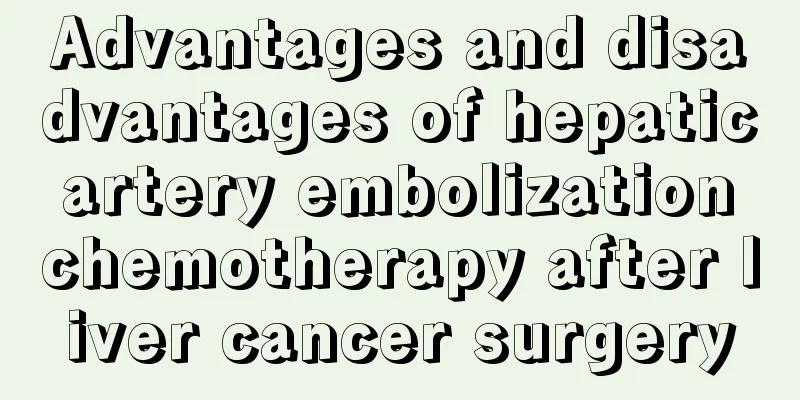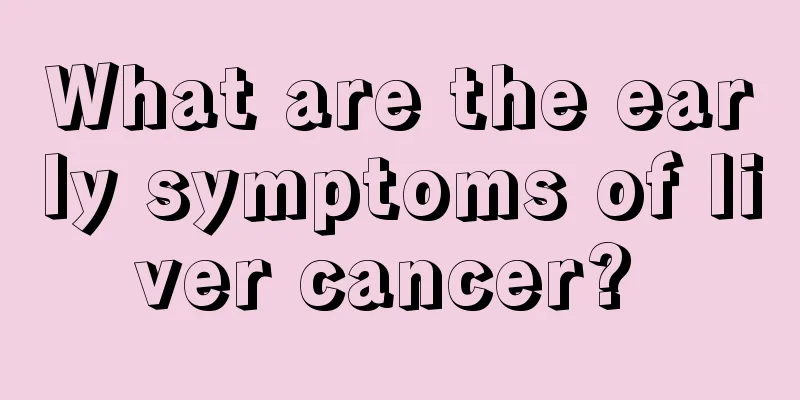Advantages and disadvantages of hepatic artery embolization chemotherapy after liver cancer surgery

|
Whether liver cancer patients relapse after liver resection seriously affects the long-term survival rate of patients. Hepatic artery chemoembolization is a major measure to prevent liver cancer recurrence in patients after liver cancer resection. The reason why hepatic artery chemoembolization after liver cancer resection can prevent liver cancer recurrence is that hepatic artery angiography should be performed at the same time as hepatic artery chemoembolization, and hepatic artery angiography is very sensitive to diagnosing whether there are tiny liver cancer metastatic lesions in the remaining liver after surgery, and can usually detect lesions with a diameter of 5mm. Arterial chemoembolization can kill these lesions, thereby reducing the possibility of postoperative recurrence in liver cancer patients. However, arterial chemoembolization can also damage liver function. If there are tiny metastatic lesions remaining in the remaining liver, then chemoembolization will not play a role in preventing and treating recurrence. On the contrary, excessive and repeated chemoembolization will damage liver function and affect the patient's long-term survival. It can be said that there are advantages and disadvantages to performing hepatic artery embolization chemotherapy on patients with liver cancer after resection. However, so far, there is no method that is effective and has no side effects in preventing and treating recurrence. Therefore, hepatic artery chemoembolization should be selectively used for patients with liver cancer after surgery. Patients with a high risk of recurrence after surgery, such as those with large tumors (diameter greater than 5 cm), multiple tumors, or vascular invasion (cancer thrombi in portal vein branches or vascular invasion found under a microscope), should be given auxiliary hepatic artery chemoembolization; patients with small liver cancer, no vascular invasion, and severe liver cirrhosis are not suitable for hepatic artery chemoembolization. |
<<: 3 necessary diagnostic items for patients with esophageal cancer
>>: Eating more garlic can prevent stomach cancer
Recommend
Will having sex with someone with bone cancer cause infection?
Bone cancer refers to the bone system, which, lik...
How long can one live with nasopharyngeal cancer and how can it be treated
How long can you live with nasopharyngeal cancer?...
Is motion sickness hereditary?
Motion sickness is the imbalance of body regulatio...
What diseases may cause upper arm pain
Everyone has experienced upper arm pain. If you p...
What medicines can cure melanoma
We know that melanoma, as a kind of skin cancer, ...
Fresh milk shelf life
Modern people's lives are very busy, and it i...
What are the effects of ground bile stewed with old duck soup?
When we hear the name of ground dandelion, we fee...
What are the benefits of drinking leek seeds and wolfberries soaked in water?
We all know that leeks are a kind of vegetable in...
Where are the acupoints for shoulder periarthritis massage?
The treatment of frozen shoulder can be achieved ...
What is the daily care method for papules and acne
When pimples keep appearing on our face, it is ca...
Three common factors that induce prostate cancer, the cause of prostate cancer
In the past, few people would suffer from prostat...
What is that protruding bone at the back of the head?
A protruding back of the head is also called rebe...
Early signs of gallbladder cancer
Gallbladder cancer is a common malignant tumor of...
How to cook freshly squeezed milk
Milk is a common drink in daily life. Many famili...
Can corn silk treat high blood pressure? How to treat it?
Corn is a kind of grain we use for daily cleaning...









